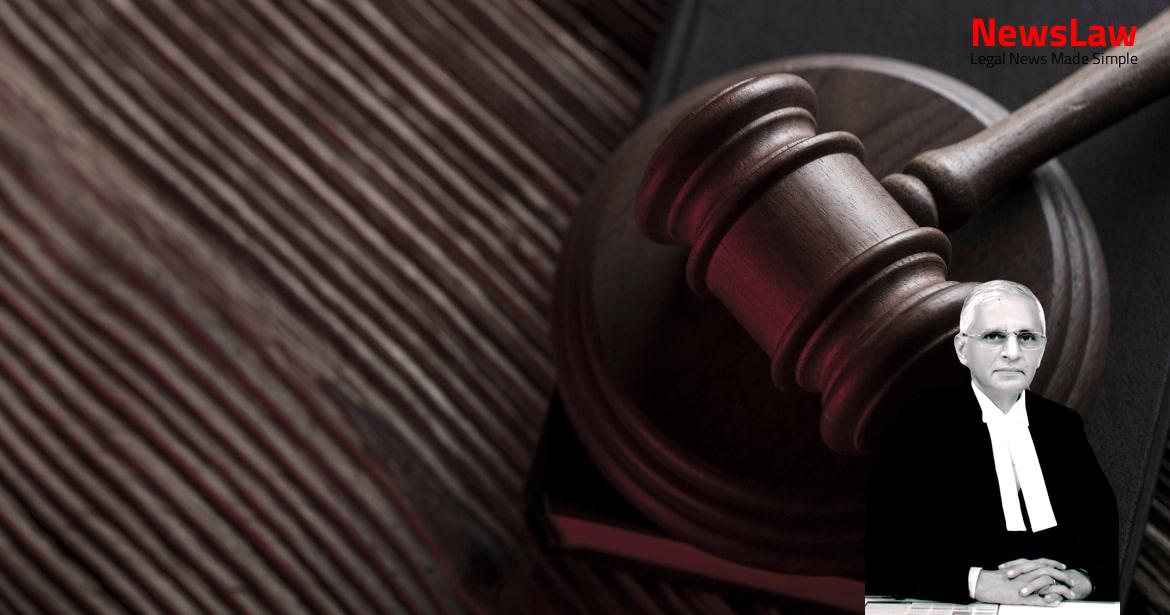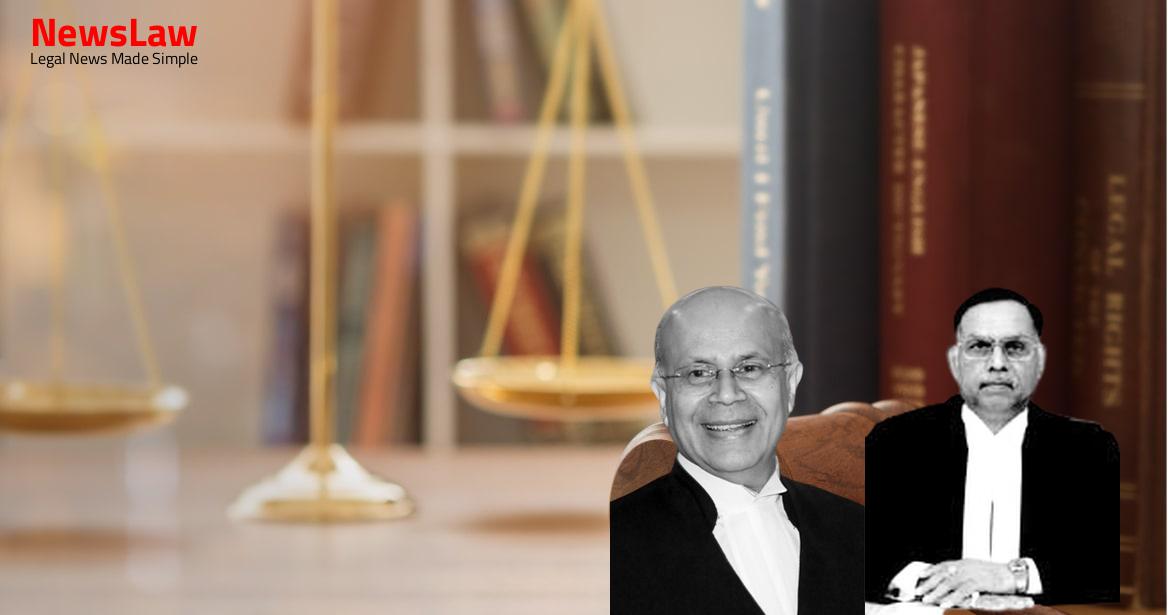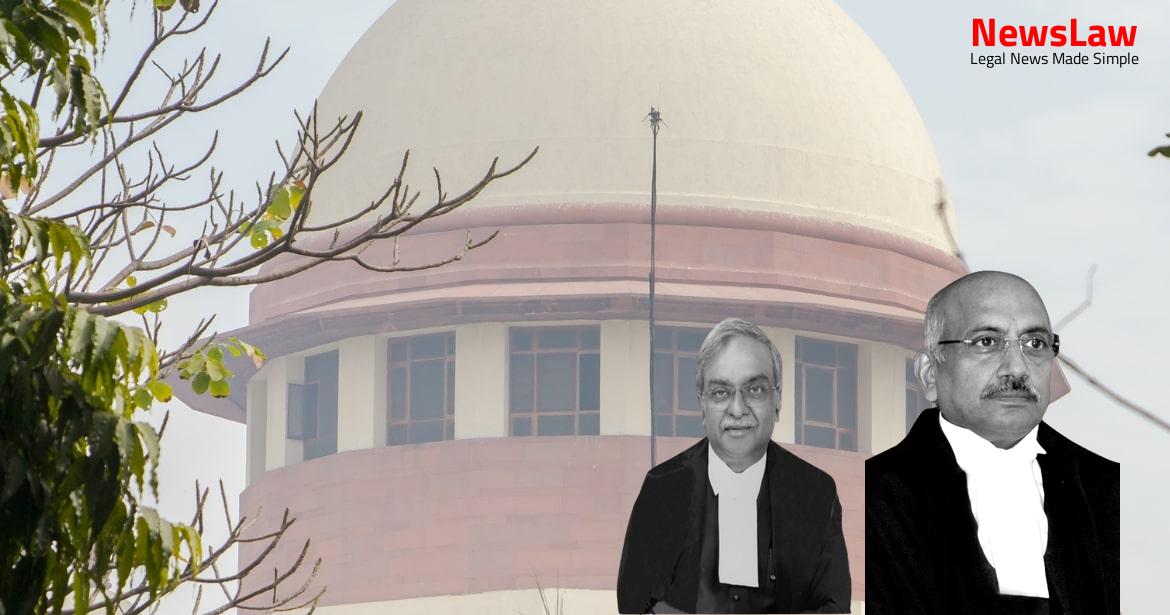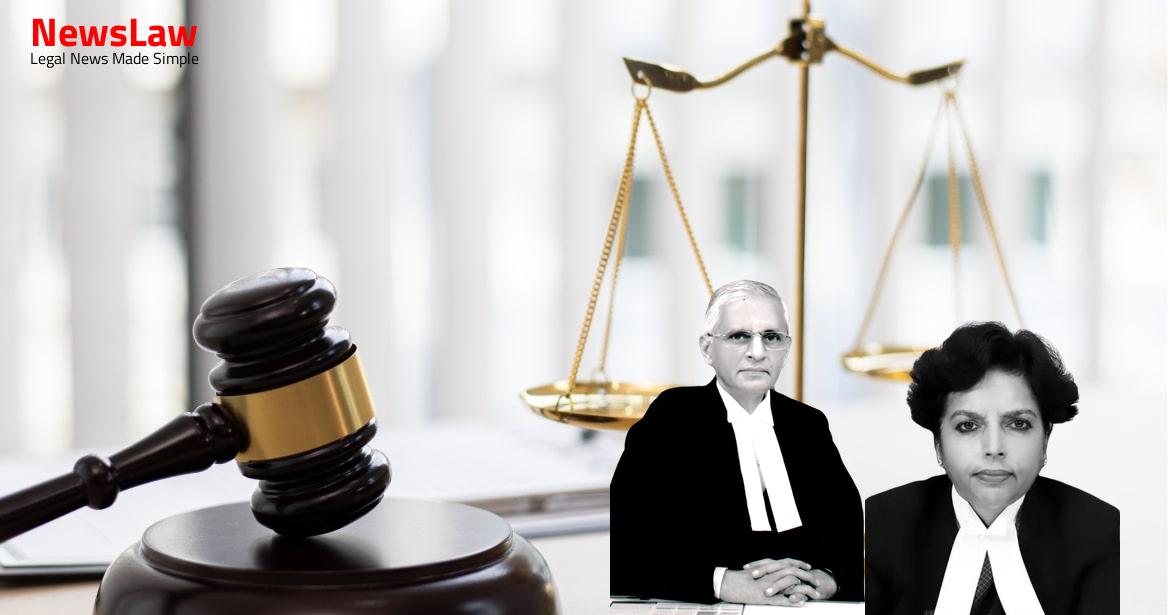In a significant legal case involving Swami Satyanand and Swami Vedvyasanand, the Supreme Court of India has issued a crucial judgment regarding the substitution of legal representatives. The court highlighted the importance of following the correct procedure in determining the legal representative and remanded the matter back to the High Court for a fresh decision. This case sheds light on the procedural intricacies involved in such legal matters and underscores the necessity of a thorough examination of legal representation issues.
Facts
- The defendant who filed the second appeal passed away on 20 March, 1999.
- Swami Satyanand was ordered to be substituted as the appellant in the pending Second Appeal.
- The suit property in question is situated in Bihar.
- Swami Shivdharmanand was one of the defendants in the title suit seeking declaration regarding the suit property.
- Swami Shivdharmanand filed a second appeal which is still pending before the Patna High Court.
- Swami Triyoganand and Swami Satyanand sought substitution in place of Swami Shivdharmanand in the Second Appeal.
- Swami Satyanand was accepted as the Legal Representative of Swami Shivdharmanand by the High Court.
- Swami Vedvyasanand filed the present appeal being aggrieved by the claim dismissal of Swami Triyoganand.
- The Trial Court’s report found Swami Satyanand to be the legal representative of Swami Shivdharmanand.
- Swami Triyoganand passed away, and attempts to bring his legal representative on record were unsuccessful.
- Swami Vedvyasanand moved applications to substitute himself for Swami Triyoganand and to recall the earlier order, both of which were dismissed by the High Court.
- The Patna High Court initially allowed both Swami Satyanand and Swami Triyoganand to be substituted as LRs to Swami Shivdharmanand based on an order on 24.02.2009.
- In a later order on 30.01.2019, the High Court upheld the Trial Court’s findings and determined Swami Satyanand as the LR of Swami Shivdharmanand.
- A subsequent order on 08.02.2018 by this court overturned the High Court’s decision and instructed the Patna High Court to consider the Trial Court’s report and the objections of parties before substituting only one claimant as appellant/defendant.
Also Read: Resolving Legal Entanglements: A Case Study of Raj Reddy Kallem vs. The State of Haryana & Anr.
Analysis
- The High Court did not follow the correct procedure while substituting Swami Satyanand as the appellant and dismissing the claim of Swami Triyoganand.
- The High Court failed to consider the objections against the Trial Court report when making its determination on substitution.
- The determination of the legal representative should be made for the limited purpose of representation of the estate of the deceased.
- If there is a dispute regarding the legal representative, a decision should be rendered on such dispute.
- The Order 22 Rule 5 of CPC outlines the process for determination of the legal representative.
- The High Court should have considered the objections and evidence from both parties regarding the claims of legal representation.
- The substitution of legal representatives is for the continuation of the case and does not confer any property rights.
- The process of determining the legal representative is crucial for giving the right to the substituted person to contest the claim of the deceased.
- Simply filing an application to bring the legal representatives on record does not automatically bring them on record.
- The legal representatives must be properly brought on record by the court before they can participate in the proceedings.
- Mere filing of an application is not sufficient to establish representation.
- In case of death of plaintiff or defendant, court must determine if any person is the legal representative of the deceased party
- Appellate Court may direct subordinate Court to try the question of legal representation before determining it
- Subordinate Court to return records, evidence, findings, and reasons for consideration by the Appellate Court
- The Appellate Court has discretion to consider findings of the subordinate court under Order 22 Rule 5 before reaching a conclusion
- The proviso in Rule 5 allows the Appellate Court to form its own opinion, not just rely on the subordinate court’s opinion
- The proviso does not delegate the Appellate Court’s powers to substitute a deceased party, but assists in deciding the substitution issue
- The Appellate Court may consider materials from the subordinate court and objections while deciding on the substitution of the appellant
- The focus of the judgement was on procedural matters, not the merit of the relative claims of the parties
Also Read: Chandan v. State of Delhi: Eyewitness Testimony and Circumstantial Evidence
Decision
- The order dated 19.06.2019 and 30.01.2019 has been set aside.
- The matter has been remitted back to the High Court for a fresh decision on substitution.
- The appeals have been disposed of along with any pending application(s).
Also Read: State of Maharashtra v. National Organic Chemical India Ltd.
Case Title: SWAMI VEDVYASANAND (D) THR LRS Vs. SHYAM LAL CHAUHAN (2024 INSC 352)
Case Number: C.A. No.-005569-005570 – 2024



